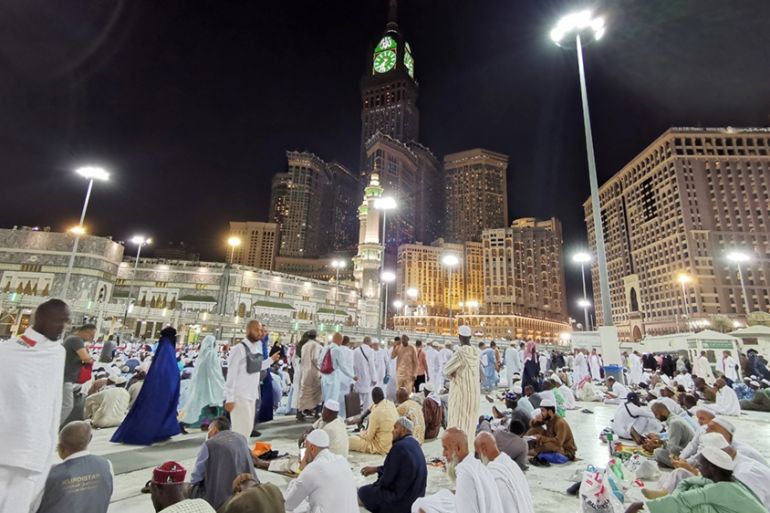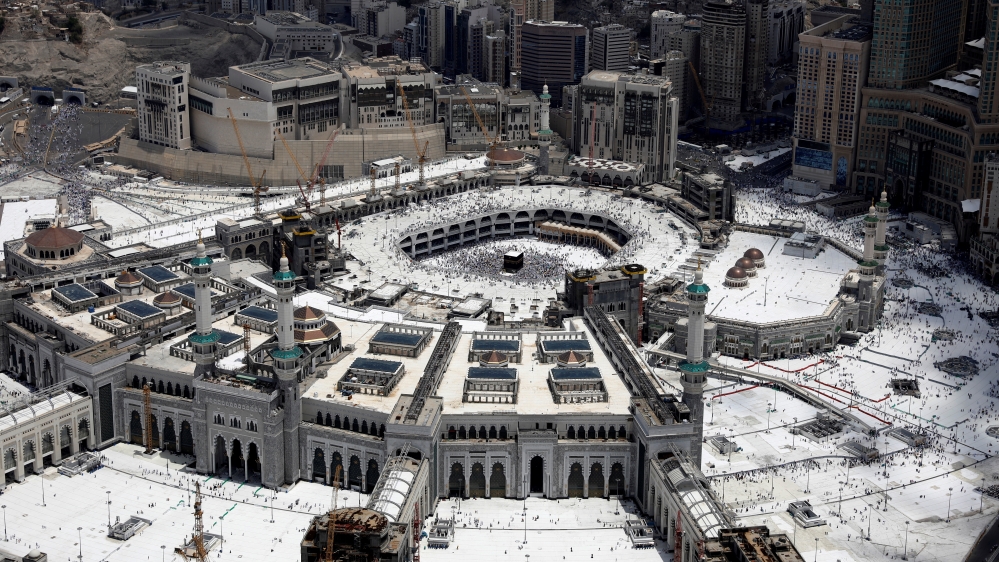Scaled-down Hajj pilgrimage to start on July 29: Saudi officials
Only 1,000 people will be able to take part in the pilgrimage and will need to be quarantined after the event.

This year’s Hajj, which has been scaled back dramatically to include only about 1,000 Muslim pilgrims because of the coronavirus pandemic, will begin on July 29, Saudi authorities said on Monday.
Some 2.5 million people usually participate in the ritual of several days, which is centred on the holy city of Mecca.
Keep reading
list of 4 itemsMexico’s teachers seek relief from pandemic-era spike in school robberies
‘A bad chapter’: Tracing the origins of Ecuador’s rise in gang violence
Why is the US economy so resilient?
“The stand of pilgrims on Mount Arafat, the peak of the Hajj ritual, falls on Thursday,” the official Saudi Press Agency cited the Supreme Court as saying, indicating that Wednesday would be the first day of the annual event.
The timing of the Hajj is determined by the position of the moon, in accordance with the Islamic lunar calendar.
Last month, Saudi Arabia announced it would hold a “very limited” Hajj, a decision fraught with political and economic peril as it battles a surge in coronavirus cases that now exceed more than 250,000.

The Hajj and the lesser Umrah pilgrimage attract millions of Muslims from around the world and together bring in some $12bn a year for the country.
Although Hajj officials have said the pilgrimage will be restricted to 1,000 people who are already in the kingdom – both foreigners and citizens – some press reports have said that 10,000 people could take part.
The ritual has been restricted to medical professionals and security personnel who have recovered from the virus, the Hajj ministry said.
The decision to exclude pilgrims arriving from outside Saudi Arabia is a first in the kingdom’s modern history.
Those taking part will be tested for coronavirus before arriving in the holy city of Mecca and are required to quarantine at home after the ritual, according to health officials.